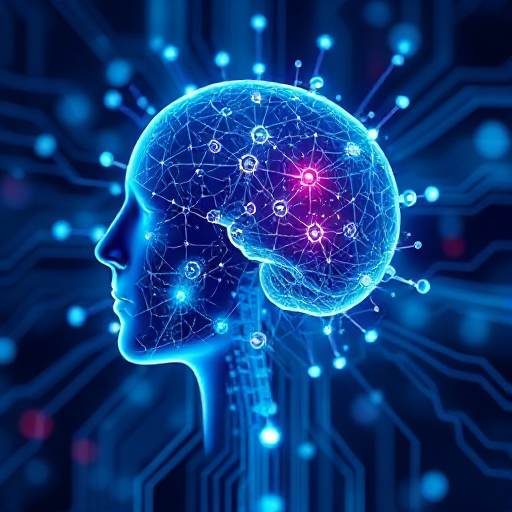Artificial Intelligence (AI) is rapidly transforming various sectors Artificial Intelligence Healthcare, and healthcare is no exception. With its ability to analyze vast amounts of data, recognize patterns, and make predictions, AI is revolutionizing patient care, enhancing diagnostic accuracy, and streamlining administrative processes. As we delve into the rise of AI in healthcare, we will explore its applications, benefits, challenges, and the future of patient care.
Understanding Artificial Intelligence in Healthcare
AI in healthcare refers to the use of algorithms and software to approximate human cognition in the analysis of complex medical data. This technology encompasses Artificial Intelligence Healthcare various subfields, including machine learning, natural language processing, and robotics. By leveraging AI, healthcare providers can improve patient outcomes, reduce costs, and enhance the overall efficiency of healthcare systems.
Applications of AI in Healthcare
1. Enhanced Diagnostics
One of the most significant applications of AI in healthcare is its ability to improve diagnostic accuracy. AI algorithms can analyze medical images Artificial Intelligence Healthcare, such as X-rays, MRIs, and CT scans, with remarkable precision. For instance, AI systems like Google’s DeepMind have demonstrated the ability to detect eye diseases and cancers at an early stage, often outperforming human radiologists.
2. Personalized Medicine
AI enables the development of personalized treatment plans tailored to individual patients. By analyzing genetic information, lifestyle factors, and medical history, AI can help healthcare providers identify the most effective treatments for specific patients. This approach not only improves patient outcomes but also minimizes the risk of adverse reactions to medications.
3. Predictive Analytics
Predictive analytics powered by AI can forecast patient outcomes and identify individuals at high risk for certain conditions. For example, AI algorithms can analyze electronic health records (EHRs) to predict which patients are likely to develop chronic diseases, allowing for early intervention and preventive care. This proactive approach can significantly reduce healthcare costs and improve patient quality of life.
4. Virtual Health Assistants
AI-driven virtual health assistants, such as chatbots and voice-activated devices, are becoming increasingly popular in patient care. These tools can provide patients with instant access to medical information, schedule appointments, and even offer medication reminders. By enhancing patient engagement and communication, virtual health assistants can improve adherence to treatment plans and overall health outcomes.
5. Drug Discovery and Development
The drug discovery process is often lengthy and costly. AI is streamlining this process by analyzing vast datasets to identify potential drug candidates and predict their effectiveness. For instance, AI algorithms can analyze molecular structures and biological data to identify promising compounds, significantly reducing the time and cost associated with bringing new drugs to market.
Benefits of AI in Healthcare
The integration of AI in healthcare offers numerous benefits, including:
- Improved Efficiency: AI can automate routine tasks, such as data entry and appointment scheduling, allowing healthcare professionals to focus on patient care.
- Cost Reduction: By enhancing diagnostic accuracy and streamlining processes, AI can help reduce healthcare costs for both providers and patients.
- Enhanced Patient Outcomes: AI-driven personalized medicine and predictive analytics can lead to better treatment plans and improved patient outcomes.
- Increased Access to Care: Virtual health assistants and telemedicine solutions powered by AI can provide patients with access to healthcare services, particularly in underserved areas.
Challenges and Considerations
Despite the numerous benefits, the rise of AI in healthcare also presents several challenges:
1. Data Privacy and Security
The use of AI in healthcare requires access to vast amounts of patient data, raising concerns about data privacy and security. Healthcare organizations must implement robust security measures to protect sensitive information and comply with regulations such as the Health Insurance Portability and Accountability Act (HIPAA).
2. Ethical Considerations
The integration of AI in healthcare raises ethical questions regarding accountability and decision-making. For instance, if an AI system makes an incorrect diagnosis, who is responsible? Establishing clear guidelines and ethical frameworks is essential to address these concerns.
3. Integration with Existing Systems
Integrating AI solutions into existing healthcare systems can be challenging. Healthcare organizations must ensure that AI tools are compatible with current technologies and workflows to maximize their effectiveness.
4. Training and Education
Healthcare professionals must be adequately trained to use AI tools effectively. Ongoing education and training programs are essential to ensure that providers can leverage AI to enhance patient care.
The Future of AI in Healthcare
The future of AI in healthcare is promising, with ongoing advancements in technology and research. As AI continues to evolve, we can expect to see:
- Greater Collaboration: AI will facilitate collaboration between healthcare providers, researchers, and technology companies, leading to innovative solutions and improved patient care.
- Expanded Applications: The applications of AI in healthcare will continue to expand, with new tools and technologies emerging to address various challenges in patient care.
- Enhanced Patient Engagement: AI-driven solutions will empower patients to take an active role in their healthcare, leading to improved adherence to treatment plans and better health outcomes.
- Global Health Impact:
